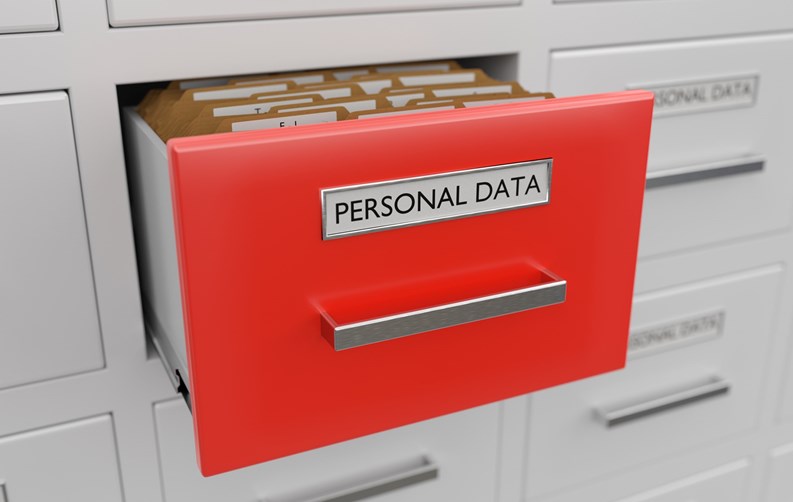Paper or electronic? It’s now a choice for everything, from the books we read for pleasure to the books we keep on our associations and corporations. Even many restaurant menus have gone digital in the wake of the pandemic. With that said, condo and HOA communities generate volumes of information and data every year, from minutes of meetings to receipts for expenses and payments to financial information on unit and share buyers. But how much of all that really needs to be kept, and for how long? And is there anything that should be kept specifically in paper form, as well as digitized?
The Practical Approach
“We manage many different types of property of varying ages,” says Marty Moran, vice president of The Building Group (TBG), a community management firm based in Chicago. “The newer properties are fully digitalized, including everything from architectural drawings to manuals for equipment systems; but older properties—especially pre-1900 vintage construction—are not. The blueprints for these buildings are still essential for us when work needs to be done, so we encourage these properties to digitize their vintage drawings.
“Digitization is not expensive and has proven essential for projects like roof replacements and boiler upgrades,” Moran continues. “Generally, when converting a property’s records to a digital format, we start with the most critical things. One building from the 1920s had the actual minutes from the very first meeting they held when the ownership was formed, as well as photos of the first board, etc. It was all very historical in nature and needed to be preserved. They digitized all those records and have a shadow box display with the original historical items in their boardroom.”
“Pre-pandemic,” says Dan Wollman, CEO of Gumley Haft, a management firm based in New York City, “we were moving to a new space that was smaller than our previous office, with less room for document storage. We scanned a million documents—we also got rid of a lot of documents. We culled through the files and scanned every single closing file, approved board package, stock certificate, financing info, etc. We had all this in a huge file room before. Now that room barely exists. It’s all digitized now. Everything is in a secure place with limited access availability. When someone sells their apartment, their file gets deleted because we don’t need it anymore. Digitalization is secure, available when needed, and protected. Everything is backed up in the cloud, and we have lots of bells and whistles for security.”
“We shifted to digital records some eight or nine years ago,” says Scott Wolf, managing partner at BRIGS, a large real estate management firm based in Massachusetts. “We started converting documents when scanning became available. Digitalization got rid of the file cabinets and boxes. I personally like paper, but I’ve come to understand that it’s redundant. Everything is available online now. We email everything with attachments—no more shifting papers and boxes by hand, which is particularly important now in light of COVID-19. I believe a majority of our competitors have converted to digital as well.”
As concerns current documents necessary for day-to-day management, Moran says, “Financial documents are arriving in digitized form or are being digitized immediately. Bank statements and other invoices now arrive 75% of the time by email, and are then automatically uploaded into our platform by our corporate accounting department. Paper invoices are scanned immediately. Retention of documents is also going to digital format. It’s just too easy to lose paper documents. We use a digital cloud-based format. Payments are also done digitally. Board members can log in with a secure password and can see the payments, give a second signature, etc. It’s completely transparent.”
What Does the Law Say?
Edward Boyack, an attorney and principal with Las Vegas-based law firm Boyack Orme & Anthony, explains that “there was a recent legislative change to Nevada’s Condominium Act that states that as of January 2022, all basic and legally required docs pertinent to an HOA or other housing association are required to be accessible via electronic portal.”
In fact, says Boyack, Nevada actively promotes the use of electronic records. As of January 2023, monthly assessments for common charges, records of past payments, and the option to autopay must all be available online. “I don’t believe there is anything that must specifically be kept in paper form,” he says. In fact, “Eighty percent of our associations are electronic now. All closing statements and transfer deeds are also electronic—and are now required to be so by law. We do keep some physical files, but nothing specific.”
Are All Documents Equal?
Echoing Boyack, Wollman says that “ninety percent of what we receive now is digitized—nothing comes by paper anymore. Bank statements, invoices, bids—they all arrive electronically. You can attach things to email digitally, so we don’t even write checks anymore. If we do have to process anything, we scan it and send it to a bank, or whomever the recipient might be.”
Like Boyack, Wollman notes that most companies are moving in this direction—and if they aren’t, they’re behind the curve. There’s not much trepidation on anyone’s part relative to the digital revolution these days—including condo communities and HOAs. Going digital is increasingly not just important, but mandatory for maintaining best business practices. Regardless, that process must be secure. Attention must be paid to what type of document is sent in what manner, and very sensitive information must be handled with an appropriate level of security. “We do our best to keep things as secure as possible,” Wollman says. “Board packages are sent through Dropbox or BuildingLink. Sensitive material, like board packages with private personal information, shouldn’t be sent by attached email anymore. There’s no security there.”
In terms of what might be necessarily kept in both digital and print formats, Wolf takes a ‘belt and suspenders’ approach with some types of documents. “There’s nothing I can think of that cannot be digital,” he says. “But there are documents that it’s mandatory to have signed and sent to the Registry of Deeds. We keep a paper copy of these, and when they become official, they are saved electronically as well. Initially we saved legal documents, insurance claim information, and stuff like that. Over time we realized we didn’t need any paper at all. We used to keep leases in a hard copy in Massachusetts, but not any longer. From a condo standpoint, everything gets digitized. The majority of new paper we receive today comes from new business inherited from other companies sending their stuff to us as new management.”
An Accountant Weighs In
Avi Zanjirian, a partner with NYC-based accounting firm Czarnowski & Beer, sees digitization as a positive trend for community association accounting—but does note some points of concern. The ability to access digitized information easily from anywhere has both positive and negative aspects. “No one wants cabinets of paper for seven years,” he says. “We do live in an age where we can digitize everything, but if everything is digitized on a server and you have closing statements, bank statements, transfers, etc., that personal information must be secure. If you keep that on the cloud and you get hacked, it’s a potential problem.
“These documents should not be open to everyone in the office,” Zanjirian continues. “In terms of workflow, especially during the pandemic, we didn’t have to go into an office; we could do all our audit work digitally. It provided more efficient work for us, and for the client as well, since they didn’t have to make room for us in their office.”
Lastly, Zanjirian points out that nothing really needs to be kept in both digital and paper forms, with the possible exception of mortgage documents. Scanned documents online are more protected and secure than paper—just remember to check both sides of any hard copy you’re converting to digital to make sure you’re capturing the entire document. If someone feels the need to keep paper copies, Zanjirian says that holding onto them for a year should be enough for most documents.
As more and more of our administrative and personal lives move online and into the cloud, building and association managers, attorneys, accountants, board members, and—when appropriate—residents need to have access to crucial documents, while also being assured that those documents are stored securely and appropriately. With everything in one easily accessible place, tasks like audits and reviews become easier to complete. The key is security and conscientious care when transferring, storing, and accessing records.n
Cooper Smith is a staff writer/reporter for CooperatorNews.







Leave a Comment